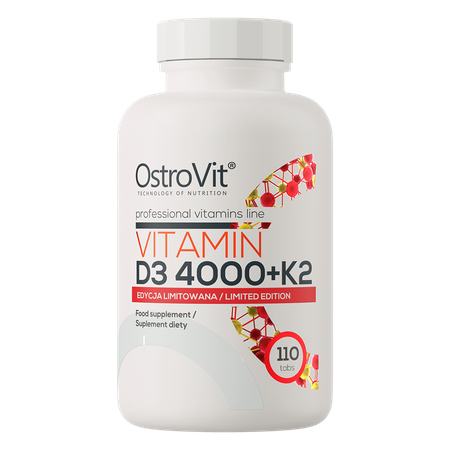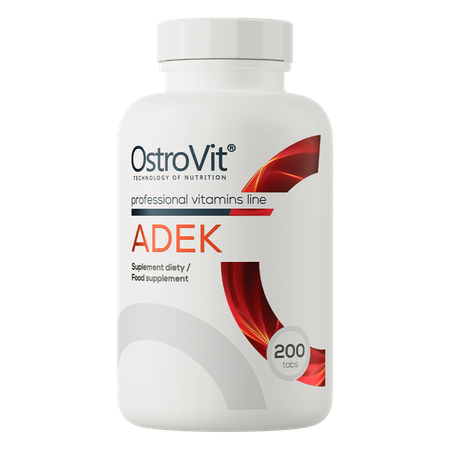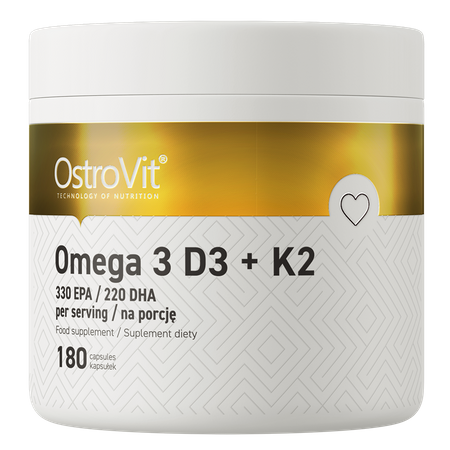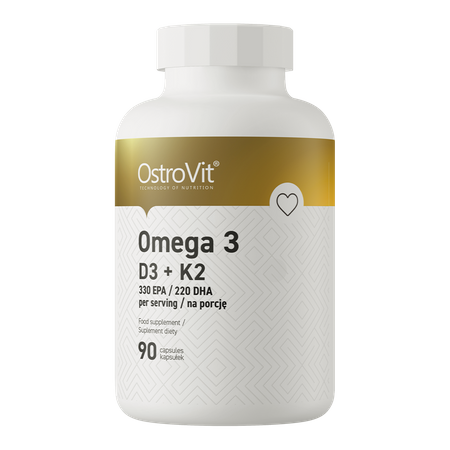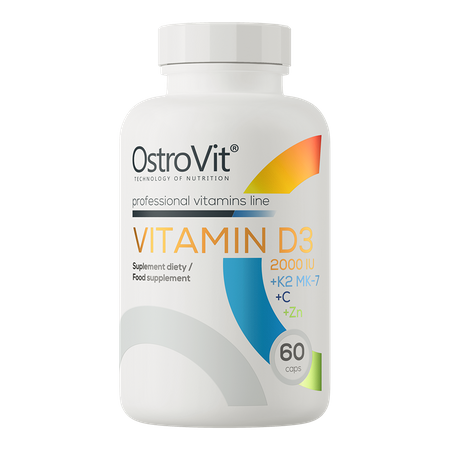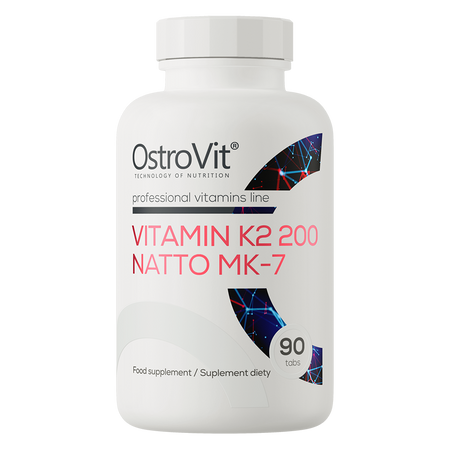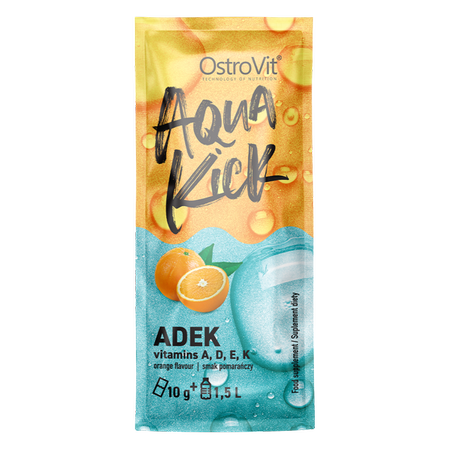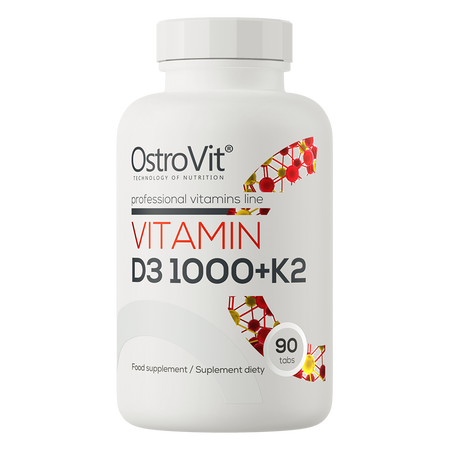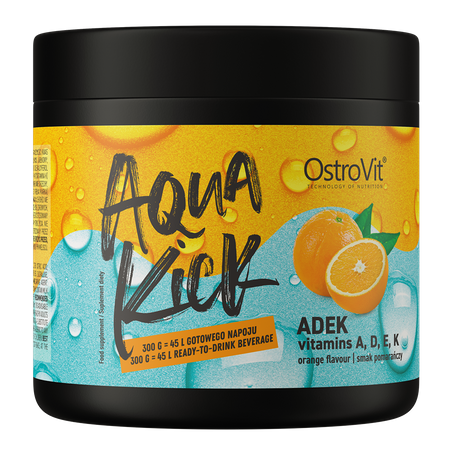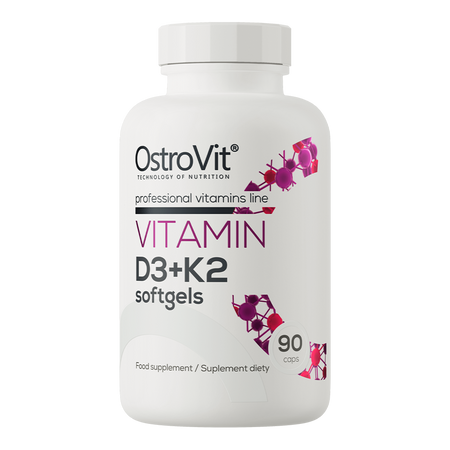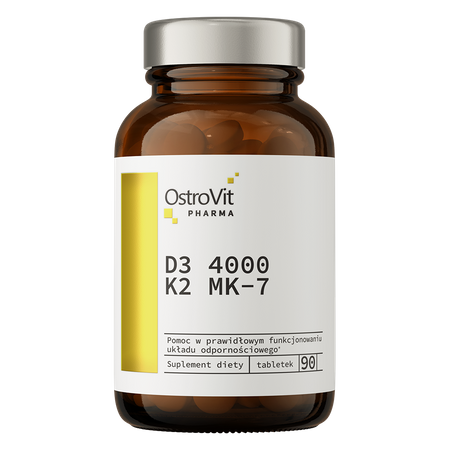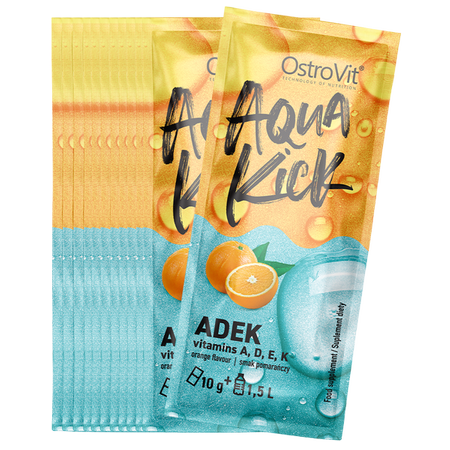Vitamin K
Vitamin K is known primarily for its antihemorrhagic effect and participation in blood clotting processes. And it's great, because it also has such a function in the body. However, did you know that vitamin K also plays other important roles in the body? It can regulate calcium metabolism, take care of strong and healthy bones, and have antibacterial properties. That is why the proper supply of the compound along with the daily diet is so important.
What is vitamin K?
Vitamin K is a group of chemical compounds that have similar properties and effects. Naturally, vitamin K comes in two forms, although we generally distinguish three basic forms of compound, namely:
- phylloquinone (vitamin K1) - is synthesized by plants,
- menaquinone (vitamin K2) - is produced by bacteria present in the digestive system,
- menadione - a synthetic form of vitamin K, called vitamin K3.
Vitamin K compounds contain a naphthoquinone ring and a methyl group in the second position. Both vitamin K1 and K2 are fat-soluble substances. Only menadione is characterized by solubility in water.Vitamin K is stored in the liver.
Nutritional sources of vitamin K
Food products rich in vitamin K are primarily green vegetables incl.: broccoli, kale, spinach, Brussels sprouts, lettuce or asparagus. In addition, the substance can also be found in other products of plant origin, such as cabbage, parsley, zucchini, soybean oil, avocado, cauliflower, potatoes or cereal products.
Vitamin K is also found in foods of animal origin, i.a.: eggs, milk and dairy products, and in liver.
Vitamin K - properties
Vitamin K is involved in many physiological phenomena occurring in the human body. First of all, it participates in the process of blood coagulation - it is necessary for the synthesis of prothrombin and thrombin, it can also affect the activity of thromboplastin.
In addition, vitamin K can strengthen the cardiovascular system and have antihemorrhagic effects or prevent the formation of visible bruises. It can strengthen the walls of blood vessels and prevent their calcification and damage.
The compound also participates in maintaining the balance of calcium metabolism in the body and calcium uptake by the skeletal system, as well as in bone metabolism and calcium metabolism. Vitamin K together with vitamin D affects the formation of bone tissue, as well as the synthesis of osteocalcin, a non-collagen protein responsible for bone mineralization in osteoblasts.
Vitamin K has antibacterial, anti-inflammatory, antifungal and analgesic properties. It participates in the transport of lipoproteins and the excretion of bile, and also participates in the regulation of serum glucose.
It is also used in cosmetics, as it can reduce redness. In addition, it can brighten the skin and improve its color.
Vitamin K requirement
According to the Nutrition Standards, the level of sufficient intake (AI) of vitamin K among men is 65 ug per day, while in the group of women - 55 ug per day. Both during pregnancy and lactation, the need for this micronutrient does not increase.
Children should provide 15 to 65 µg of the compound daily. This value depends on gender and age.
Increased demand for vitamin K can be observed among people suffering from liver disease, malnutrition or among those using certain drugs.
Vitamin K deficiency in the body
Among adults, vitamin K deficiencies rarely occur. This is due to the fact that a significant part of the daily requirement for a micronutrient is covered by vitamin K2, which is synthesized in the body by the intestinal microflora. Only the remaining part is replenished with food.
Substance deficiencies occur most often among those suffering from malabsorption syndrome, as well as among people with liver or intestinal diseases. Also, long-term antibiotic therapy may contribute to the occurrence of deficiencies of the compound. Vitamin K deficiencies in the body are also exposed to people after serious surgery, suffering from celiac disease, chronic pancreatitis or cystic fibrosis.
Possible symptoms of vitamin K deficiency include:
- heavy menstruation,
- increased susceptibility to bacterial infections,
- tendency to bruise,
- frequent diarrhoea,
- bowel disorders,
- nosebleeds,
- blood clotting disorders,
Prolonged vitamin K deficiency can contribute to serious disorders and health problems, such as:
- osteoporosis,
- jaundice,
- calcification of blood vessels,
- anaemia,
- liver damage.
Insufficient supply of the compound can also be the cause of hemorrhagic disease of newborns, a dangerous condition that can lead to internal hemorrhages that threaten the child's life.
Excess vitamin K in the body
The risk of excess vitamin K is also low. Most often, an overdose of substances occurs as a result of improper use of dietary supplements.
Symptoms of too much vitamin K can be:
- feeling hot,
- hyperhidrosis,
- pain in the chest,
- liver dysfunction.
Vitamin K supplementation
Dietary supplements rich in vitamin K are recommended for people suffering from deficiencies and those who are at risk, i.e. people with cystic fibrosis, celiac disease, liver disease or those using antibiotic therapy.
Among athletes and the elderly, vitamin K can support the proper condition of muscle tissue. The substance is also important in maintaining fitness and strength.
Interactions of vitamin K with other preparations
Antagonists of vitamin K are anticoagulants such as warfarin, dicoumarol or indandone derivatives. Therefore, people taking these drugs should not use dietary supplements rich in vitamin K. You should also be careful about natural sources of this substance in the diet. Vitamin K may contribute to weakening the effect of anticoagulants and thus reduce their effectiveness.

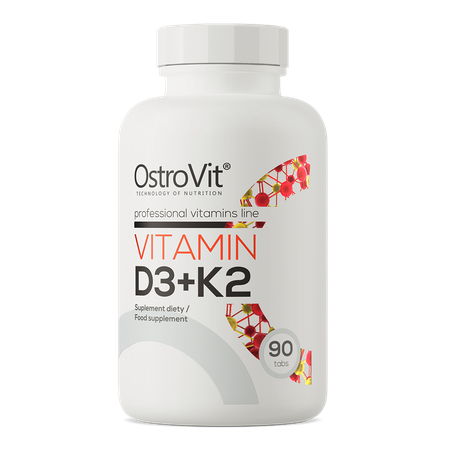
 Bestseller
Bestseller